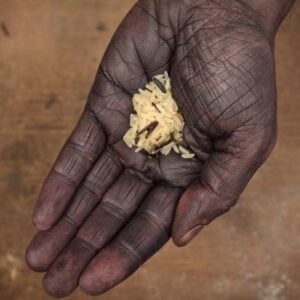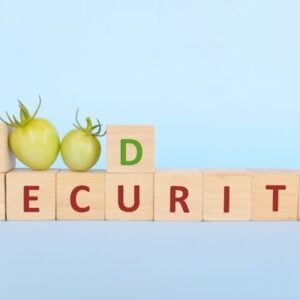Natasha Hayward, Program Manager of the Global Agriculture and Food Security Program (GAFSP) at the World Bank, shared her expert insights on global food security in an exclusive interview with Capital. With over two decades of experience across Africa, South and East Asia, Hayward has led major initiatives in agriculture, rural livelihoods, and nutrition security, emphasizing community-driven development and social inclusion. She is currently spearheading the Global Challenge Program for Food and Nutrition Security, which monitors and responds to evolving challenges in global agri-food systems.
Hayward highlighted the urgent factors exacerbating food insecurity, noting that conflict, severe climate shocks, and inflation are deepening hunger in low-income countries. She stressed the importance of integrated approaches that combine nutrition, climate resilience, and environmental conservation to address both immediate needs and long-term stability.
GAFSP addresses financial gaps in agriculture by blending public and private financing, channeling funds through country-led plans, and leveraging co-investments. The program recently launched the $75 million Business Investment Financing Track (BIFT) to mobilize private and climate capital for smallholder farmers, MSMEs, and agrifood startups, promoting public-private partnerships and enhancing local value chains.
Hayward emphasized the critical role of the private sector in scaling agricultural transformation, noting that farmers themselves are private actors. GAFSP focuses on investing in enabling environments and de-risking investments, particularly in fragile or underdeveloped regions where the potential impact is greatest. She compared current challenges to the 2007–08 food price crisis, highlighting the need for long-term, integrated investments that deliver co-benefits such as women’s empowerment, climate resilience, and nutrition outcomes.
In Ethiopia, GAFSP has contributed US$87 million to the Agricultural Growth Program (AGP), reaching over three million people. The program improves smallholder productivity and market access through climate-smart irrigation, infrastructure, and extension services, while integrating nutrition-sensitive and climate-adaptive practices. Private sector financing also supports livestock production and nutritious meat supply chains.
Hayward discussed GAFSP’s integrated approach, citing projects like Rwanda’s Sustainable Agricultural Intensification Project (SAIP), which strengthened food systems for nearly 200,000 people by establishing kitchen gardens, promoting nutrition-sensitive practices, and engaging women in home-based nutrition initiatives. She underscored the importance of cross-cutting objectives such as gender equity, sustainability, and climate resilience to maximize impact.
Since 2010, GAFSP has mobilized US$2.5 billion to support over 20 million people in vulnerable regions. Examples include Timor-Leste, where climate-smart agriculture and watershed planning have enhanced yields, reduced post-harvest losses, and improved market access, even in conflict-affected areas. Looking ahead to 2030, GAFSP’s strategic priorities focus on maximizing co-benefits, enabling innovative country-led solutions, and catalyzing additional public, private, and climate finance.
Youth and women’s empowerment are central to GAFSP’s approach. In Ethiopia, the program supports young agricultural entrepreneurs across the business growth cycle, while initiatives in Mauritania and The Gambia provide women with land access, market platforms, and climate-smart training. These interventions aim to enhance livelihoods, nutrition, and long-term community resilience.
Finally, Hayward emphasized that GAFSP complements broader World Bank initiatives, such as Ethiopia’s Food Security Resilience Project, by filling targeted gaps and ensuring coordination with national priorities. While macroeconomic pressures like inflation can exacerbate food insecurity, GAFSP strengthens long-term resilience through productivity improvements, market access, and climate adaptation.







